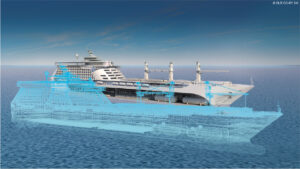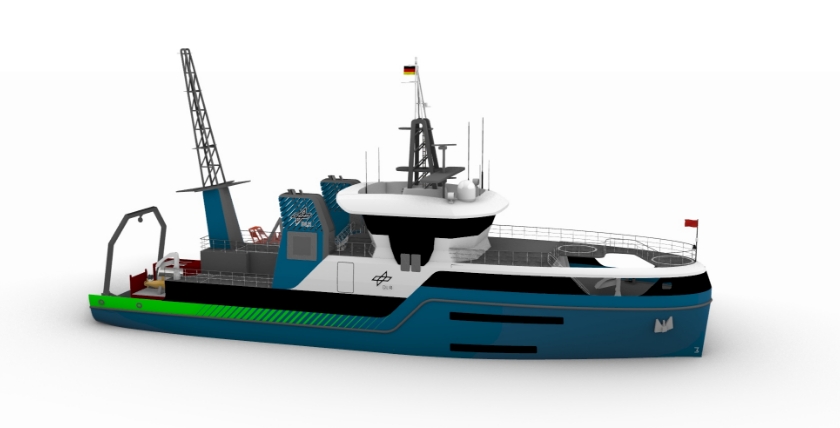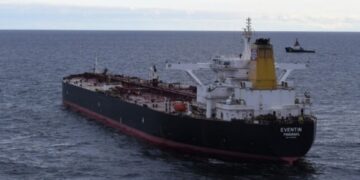The German Aerospace Centre (DLR) has commissioned Lloyd Werft in Bremerhaven to build a new research vessel. The corresponding contract for the base ship was signed at the beginning of February 2025 and is expected to cost around 36 million euros.
From completion in summer 2027, the DLR research vessel, which is 48 metres long and can accommodate up to 20 people, will primarily be used for test voyages lasting one to several days on the North Sea and Baltic Sea and will be a unique laboratory for real-life experiments. It will also offer the maritime industry the opportunity to jointly research innovative and climate-friendly energy systems and propulsion concepts based on hydrogen and batteries. It therefore makes sense to choose Kiel as the home port, at the new DLR branch office to be built in 2024 with the same postal address as German Naval Yards and right next to tkMS.
The aim is also to open up new opportunities for public-sector clients to modernise their maritime fleets in a climate-friendly and competitive manner. With this interdisciplinary research approach, DLR is a sought-after partner for industry and authorities in the maritime sector, emphasises the Chairwoman of the DLR Executive Board.
Floating laboratory
In the specially designed test engine room, DLR researchers will investigate new propulsion technologies, also together with commercial enterprises and authorities from the maritime sector. Components that have not yet been certified (e.g. energy converters) can then be tested under real conditions. The tests will focus on how the energy generated can be safely fed into the on-board network and thus used for propulsion.

Digital twin for innovative holistic analyses. Graphic: DLR (CC-BY 3.0)
Innovations
The research vessel will also have a digital twin for new types of holistic analyses. Using this digital image, DLR scientists will be able to carry out comprehensive computer simulations to ensure the safe and efficient operation of the real ship. For example, propulsion components or digital navigation systems can be analysed in order to prepare tests and accompany them in practice.
Conclusion
DLR offers all maritime partners a platform for the development, integration, testing and certification of resource-saving, digital and intelligent systems. Authorities with security tasks will also benefit from the new research vessel in order to promote climate-friendly shipping in all areas.
kdk, DLR












0 Kommentare